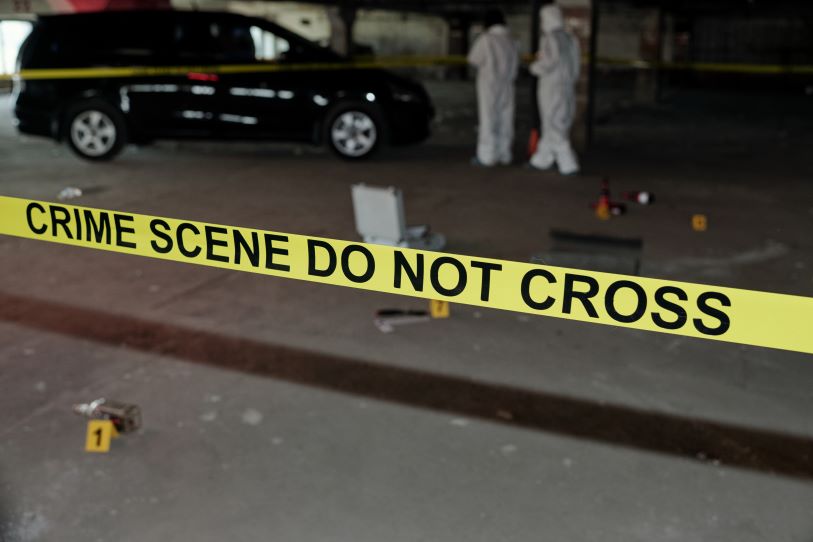
The life sentence handed down to Deandre Burgess for the 2023 murder of Teavin Reed outside a Riviera Beach Sunoco gas station has brought a new focus on the gas station’s potential liability in the case. Legal experts are raising the possibility that Reed’s family could have grounds for a wrongful death claim based on premises liability and negligent security.
What Happened?
On the night of May 3, 2023, Reed arrived at the Sunoco located on President Barack Obama Highway in a van. He stepped out of the vehicle and began walking to the gas station convenience store to meet to an individual when Burgess pulled out a handgun and began firing. According to reports, 10 rounds were fired.
After being arrested, charged, and tried, Deandre Burgess was convicted of first-degree murder on July 17, and was immediately sentenced to life in prison by Circuit Judge Scott Suskauer. A second charge of being a felon in possession of a firearm was set for a separate hearing in August, according to court records.
What is Premises Liability and Negligent Security?
Premises Liability: This legal concept hold property owners responsible for maintaining a safe environment for visitors. If a property owner fails to take reasonable steps to prevent foreseeable harm, they can be held liable for injuries or deaths that occur on their property.
Negligent Security: This refers to a property owner’s failure to provide adequate security measures to protect visitors from criminal acts. This can include a lack of security cameras, poor lighting, or inadequate security personnel.
Could the Gas Station Be Held Liable?
In this case, several factors could support a wrongful death claim against the Sunoco station:
1. Prior Incidents: if the gas station had a history of violent crime or other safety issues, this could demonstrate that the owner was award of the risks and failed to take appropriate action.
2. Security Measures: Did the gas station have adequate security measures in place, such as security cameras, lighting, or security personnel? If not, this could be seen as a failure to provide a safe environment for customers.
3. Foreseeability: Was the incident a foreseeable event? If the gas station owner knew or should have known about the potential for violence, they may be held responsible for failing to prevent it.
What is Required of the Victim’s Family?
In Florida, the personal representative of Teavin Reed’s estate is the only individual allowed to file a wrongful death lawsuit. This representative is typically designated in the deceased’s will or appointed by the court. While one person files the lawsuit, any compensation awarded is distributed to the surviving family members who suffered losses due to Reed’s death.
To establish a valid wrongful death claim against the gas station, Reed’s family and their attorney would need to prove negligence. This means demonstrating that the gas station had a duty to protect its customers, that they failed to uphold that duty, and that this failure directly caused Reed’s death.
The family’s attorney would likely focus on the gas station’s security measures and whether they were adequate to deter criminal activity. They would investigate factors such as the presence (or absence) of security cameras, lighting, and security personnel, as well as any history of prior incidents at the location. If the gas station failed to take reasonable precautions to prevent violence, they could be held liable for Teavin Reed’s death.
By pursuing a wrongful death lawsuit, the Reed family can seek compensation for various damages, including medical and funeral expenses, loss of financial support, and the pain and suffering caused by their love one’s untimely death.
Why Call GOLDLAW for a Wrongful Death Claim Case Consultation?
Because the expert Negligent Security lawyers at GOLDLAW can study the case and determine if you have a valid claim by investigating the following:
1. The gas station’s history: GOLDLAW will gather evidence or any prior incidents of crime or violence at the location.
2. Security measures: GODLAW will assess the adequacy of the gas station’s security measures and determine if they met industry standards.
3. Witness testimony: GOLDLAW will interview witnesses to the incident and other individuals who frequented the gas station to gain insights into the overall safety of the premises.
4. Expert opinions: GOLDLAW may consult with security experts to determine what reasonable security measures should have been in place.
If the evidence supports a wrongful death claim, GOLDLAW will work to hold the gas station accountable for their negligence and seek compensation for your family!
If you or somebody you care about has sustained an injury caused by the negligent actions of a property owner, we encourage you to reach out to a GOLDLAW attorney as soon as possible At GOLDLAW, we have a deep understanding of Florida personal injury law, and we know what it takes to secure compensation for a premises liability and negligent security claim. For your COMPLIMENTARY case evaluation, “Choose the 2’s,” and call 561-222-2222, or click here to submit your case evaluation form.



